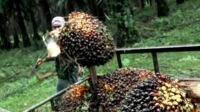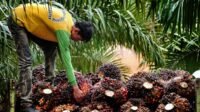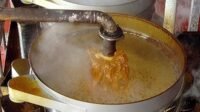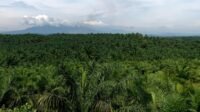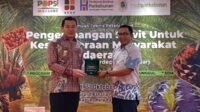PALMOILMAGAZINE, KUALA LUMPUR – India has officially become the largest importer of germinated oil palm seeds from Malaysia, driven by its accelerated national push to expand domestic oil palm plantations and reduce dependence on imported vegetable oils.
According to official data, India imported around 3.03 million tons of palm oil from Malaysia in 2024, accounting for 17.9% of Malaysia’s total palm oil exports, solidifying its position as the top destination for Malaysian palm oil products.
“There has been a significant surge in demand for Malaysian oil palm seeds, particularly from India,” said Dato’ Dr. Ahmad Parveez Ghulam Kadir, Director General of the Malaysian Palm Oil Board (MPOB), as quoted by Palmoilmagazine.com from Indiatimes, Tuesday (22/7/2025). He attributed this to India’s ambitious target of expanding domestic oil palm cultivation.
Also Read: CPOPC: Palm Oil Industry Powers Inclusive Growth and Decent Work in Developing Nations
Under its National Mission on Edible Oils – Oil Palm (NMEO-OP), India aims to develop 1 million hectares of oil palm plantations by 2025–2026, expecting crude palm oil (CPO) production to reach 2.8 million tons by 2029–2030. Currently, India’s planted oil palm area stands at around 370,000 hectares, with key developments focused in the northeastern states and island territories.
Despite the growing seed trade, Ahmad Parveez noted that most transactions remain informal and based on one-off consignments without long-term contracts. The exports are predominantly business-to-business, with Malaysian seed providers also offering technical assistance to ensure successful cultivation.
India’s strong interest in Malaysian oil palm seeds reflects both trust in the planting material’s quality and the strength of bilateral cooperation. “This is a major opportunity we intend to grow, especially in the area of sustainability,” he added.
Interestingly, while seed exports are surging, Malaysian CPO exports to India have moderated, following India’s tariff adjustments to stabilize domestic cooking oil prices. “We understand this is part of India’s national supply management strategy,” said Ahmad Parveez.
Nonetheless, India remains a key partner for Malaysian palm oil. MPOB is now working to further penetrate India’s food processing and hospitality sectors, while promoting Malaysian Sustainable Palm Oil (MSPO)-certified products.
On the R&D front, Malaysia continues to develop high-yielding varieties capable of producing over 30 tons of fresh fruit bunches (FFB) per hectare annually, nearly double the national average of 15.47–16.73 tons between 2020 and 2023. These new varieties are also slower-growing vertically, extending their economic lifespan to over 30 years.
“Malaysia’s current commercial seeds are well-suited to India’s climate, particularly in regions with adequate rainfall. We’re also researching climate-resilient varieties, especially those tolerant to drought,” Ahmad Parveez concluded. (P2)






